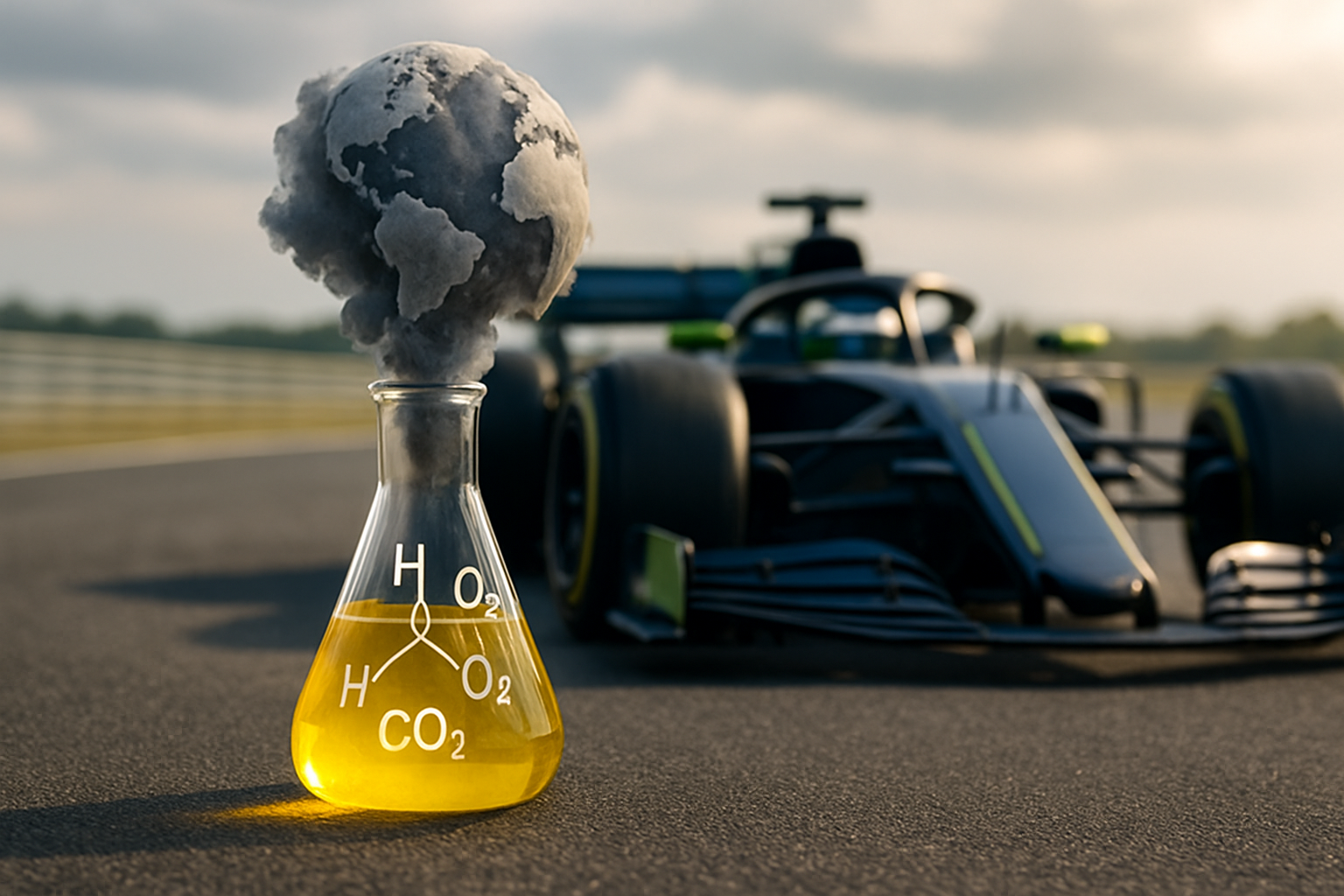Synthetic Fuels: The Unsung Heroes of Sustainable Motorsport
The roar of engines, the smell of burning rubber, and the thrill of high-speed competition have long been hallmarks of motorsport. But as the world grapples with climate change, the racing industry faces a pivotal challenge: how to maintain the excitement and performance while reducing its carbon footprint. Enter synthetic fuels, a groundbreaking solution that's revolutionizing the world of motorsport sustainability without sacrificing the raw power and emotion that fans crave.

The Science Behind Synthetic Fuels
Synthetic fuels, also known as e-fuels or power-to-liquid fuels, are created through a complex process that combines hydrogen and carbon dioxide. Unlike traditional fossil fuels extracted from the earth, these fuels are manufactured in laboratories and specialized production facilities. The process begins with the electrolysis of water to produce hydrogen, which is then combined with CO2 captured from the atmosphere or industrial processes.
This innovative approach results in a fuel that is chemically similar to conventional gasoline or diesel but with a significantly reduced carbon footprint. When burned, synthetic fuels release only the CO2 that was used in their production, creating a nearly carbon-neutral cycle. This characteristic makes them an attractive option for motorsport organizations looking to reduce their environmental impact without overhauling their entire infrastructure.
Porsche’s Pioneering Role
At the forefront of synthetic fuel development in motorsport is Porsche, a brand synonymous with racing heritage and innovation. The German automaker has invested heavily in e-fuel technology, seeing it as a viable path to sustainability for both road cars and racing vehicles. In 2022, Porsche announced a partnership with Siemens Energy to build an e-fuel plant in Chile, aiming to produce 550 million liters of synthetic fuel by 2026.
Porsche’s commitment to synthetic fuels extends to the racetrack, where they’ve been testing these fuels in their high-performance engines. The results have been promising, with synthetic fuels delivering comparable performance to traditional racing fuels while significantly reducing carbon emissions. This success has led to increased interest from other manufacturers and racing series, eager to explore the potential of this technology.
Formula 1’s Sustainable Fuel Initiative
Formula 1, the pinnacle of motorsport, has also recognized the potential of synthetic fuels in its quest for sustainability. As part of its ambitious plan to become carbon neutral by 2030, F1 has announced that all cars will run on 100% sustainable fuel by 2026. This move represents a significant shift for a sport that has long been associated with excess and environmental disregard.
The transition to synthetic fuels in F1 is not just about reducing emissions; it’s about setting a new standard for the entire automotive industry. By demonstrating that high-performance racing can be sustainable, F1 hopes to accelerate the development and adoption of cleaner fuel technologies in everyday vehicles. This initiative has already sparked collaborations between fuel suppliers, engine manufacturers, and racing teams, all working together to create the next generation of sustainable, high-performance fuels.
Challenges and Opportunities
While the potential of synthetic fuels in motorsport is clear, several challenges must be overcome for widespread adoption. One of the primary hurdles is cost. Currently, producing synthetic fuels is significantly more expensive than refining traditional fossil fuels. However, as technology improves and production scales up, experts predict that these costs will decrease, making synthetic fuels more competitive.
Another challenge is energy efficiency. The process of creating synthetic fuels requires a substantial amount of electricity, which must come from renewable sources to maintain the fuel’s carbon-neutral status. This necessitates significant investment in green energy infrastructure alongside fuel production facilities.
Despite these challenges, the opportunities presented by synthetic fuels are immense. Beyond motorsport, this technology has the potential to revolutionize the broader transportation sector, offering a cleaner alternative for vehicles that cannot easily be electrified, such as aircraft and long-haul trucks.
The Future of Racing: Green and Mean
As synthetic fuels continue to evolve, we can expect to see their influence grow across various motorsport disciplines. From endurance racing to rally competitions, the adoption of these sustainable fuels will allow teams and manufacturers to push the boundaries of performance while minimizing their environmental impact.
This shift towards sustainability doesn’t mean the end of the thrilling, high-octane racing we’ve come to love. On the contrary, it opens up new avenues for innovation and competition. Engineers and chemists will work hand in hand to develop fuels that not only reduce emissions but also enhance engine performance, potentially leading to even faster and more exciting races.
The integration of synthetic fuels into motorsport represents a pivotal moment in racing history. It’s a testament to the industry’s ability to adapt and innovate in the face of global challenges. As these fuels become more prevalent on racetracks around the world, they’ll not only help preserve the sport we love but also contribute to a cleaner, more sustainable future for all. The race towards a greener tomorrow is on, and synthetic fuels are leading the charge.






